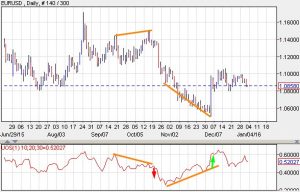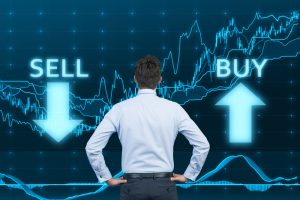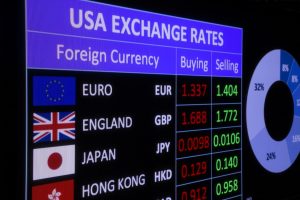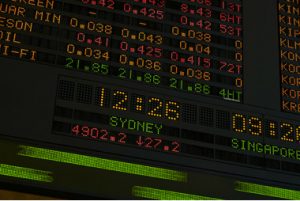In the present era of zero interest rates, the search for alternative investment channels is a subject of great popular interest ■ As an example, online trading empowers you to personally manage your investments and presents you with a means for economic independence
In recent years, trading in capital markets has undergone a significant change. Unlike previously, when to invest in the stock market investors had to use intermediaries such as investment advisers at banks, now all you need is an internet connection and an advanced platform for independent online trading. These two components, along with the professional support of a trading company through which you act, give you an opportunity for economic independence, and allow you to avoid the high trading fees charged by banks; Opening a world previously unknown to you.
Controlling Your Financial Fate
In the present era, with households desperately fleeing closed banking deposits, which cause them real losses, or at best give them a ludicrous annual yield of about 0.5%, many seek to invest their money in the capital market. One possibility is to contact the Bank’s investment advisor and ask him to invest a portion of your savings on the stock exchange. If you choose this option, you will find that within a short period the bank charged you various commissions regardless of whether your investments have borne fruit, or lead to losses. The alternative is to abandon the banks when it comes to investments in the capital market, to study the field and control your own financial destiny. “Through independent trading you can effectively manage your risks and decide at anytime of the amount you invest and whether you should get out of a specific transaction,” said Roi Dan, trading supervisor at Prime Broker.
Learn a new field
Capital markets are a world in and of themselves. In recent years, the public has grown increasingly interested in issues such as cost of living, pension, stock market, monetary policy, stocks etc. At the same time, and as previously mentioned, the low interest rates provided by banks almost everywhere, have pushed millions of people to the capital markets. The resulting demand for knowledge in the field is constantly increasing. And while many would prefer to invest their funds in the capital market but, out of fear, turn, as mentioned, to advisors and investment managers. Although the field does requires appropriate knowledge, but it certainly does not require the solving of sophisticated formulae available only to outstanding students of finance. In fact, anyone who has the desire can learn the basics of trading and become an independent trader. How to do it? Over the internet you can find plenty of information related to trading in the capital market: short guides, entire books, methods, and different strategies. In addition, independent trading investment houses, like prime broker, are always ready to assist their customers and provide them with a wide variety of educational materials.
Enough to pay commissions
Anyone who has ever managed an investment portfolio through the banks certainly has (or should be) certainly surprised to find the assorted fees collected each quarter. Banks assess the most exhorbitant commissions on periodic/management fees (on the basis of their “guarding” your securities). These fee range from 0.1% to 0.6% for all banks. In other words, the bank charges you a management fee percentage irrespective of whether you lose or profit. In addition, banks charge a commission for buying, selling, changing or cancelling orders in securities (transaction fees) at an average rate of between 0.3% to 0.5% on each transaction. In comparison, online trading companies, assess transaction fees, in the range from 0.01% to 0.2%. Also, most trading firms do not charge money for the non-execution or cancellation of orders, and trading fees for foreign securities are much lower than those charged by local banks. Domestic banks are estimated to generate commission income of some NIS3 billion annually [1].
“Trading firms’ commissions are almost non-existent in some assets,” says Dan. According to him, in certain instruments, such as forex trading, online trading fees that companies charge are negligible and their revenues are based essentially on the buy/sell trade spread.
Independent Trading – all the tools for succeed
Another advantage to independent traders are the tools and systems placed at your disposal by trading companies. For example, leading trading companies allow customers to use advanced systems which may be used to selectively employ a variety of contemporary market systems and strategies. In addition, trading firms allow their clients to execute “short” trades, which generate profits on price declines. These trading systems are easy to employ and allow for a variety of profit-maiximizing strategies. “Any self-respecting company now offers a seamless interface, regardless of platform: smartphone, tablet or desktop,” says Dan, “one of the world’s leading software is ‘MetaTrader 4’, with which we work at Prime Broker.
Personal professional support
While ostensibly trading alone, professional guidance and assistance is one of the most significant benefits online traders receive, says Dan. “In fact, traders have a whole team behind them which help them to get on track.” He said that established companies provide customers with personal and professional trading available almost anytime and helps the trader in understanding capital markets, trading systems, sites with important data for the various markets and so on. Additionally, a trading room, operating more than 12 hours a day, provides support for all the difficulties and questions of traders. So if you are tired of high bank fees, and are interested in a kind of economic self-sufficiency, consider becoming and independent trader. You do not have to turn online trading into your primary profession, but it certainly can provide you with a way to earn extra money from home or transfer your investment activities of banks.
*** Read the full company risk-disclosure, before contacting it for any service.










